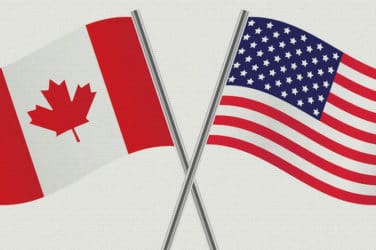
Foreign investors want a piece of Canada….but so does Canada.
Canadian investors know that while their local market isn’t hugely diversified, what it does have, it has in surplus. The top holdings within S&P/TSX Composite remain financials, energy, and materials, respectively. The political uncertainty seen in the Middle East throughout 2011 and ongoing volatility means that oil, in particular is becoming more and more a global commodity.
When there’s a global commodity in high demand, market players can be sure China, the world’s second largest economy, wants in. Yet, in the case of Canada, Chinese investment might not necessarily be high up on the pecking order.
Sunshine Oilsands Limited, a Calgary-based oil holdings companies announced on February 6 that they would postpone a long-anticipated $700 million IPO (initial public offering), to be listed on the Hong Kong stock exchange, stalling the latter’s dreams of becoming a global listing center for natural resource companies.
Oilsands’ main reason behind the delay relates to a domestic initiative to get Canadian investors on-board, too, according to The Wall Street Journal. The firm is vying for a spot on the Hong Kong exchange mainly because of its three large mainland Chinese investors, China Life’s China Life Overseas unit, Bank of China Group, and the Cross-Strait Common Development Fund. Retail investors on the other hand, are largely unfamiliar with the yet-to-be-profitable firm.
But many fund managers based in Hong Kong, let alone retail investors, are still unsure how to value exploration-stage resource companies.
Over 90% of its investment in Canada is energy-related. Other notable Canadian-Chinese ventures include last year’s takeover of Canadian based Daylight Energy, by Sinopec; the Chinese firm accumulated $30 billion of Canadian assets over the past five years.
“These massive Chinese corporations are generally state-owned, or at least state-connected, raising questions about Canadian sovereignty over its own resources,” said a source familiar with Canadian-Chinese relations.
Protective measures such as the Investment Canada Act is also in place also to “to provide for the review of significant investments in Canada by non-Canadians in order to ensure such benefit to Canada.”
Canadian hostility towards the Chinese is not unique. The U.S. banking sector, in particular, has much to be worried about given that China Investment Corp largely bailed out its top dogs back in 2008, thereby making China the largest holder of U.S. debt.




